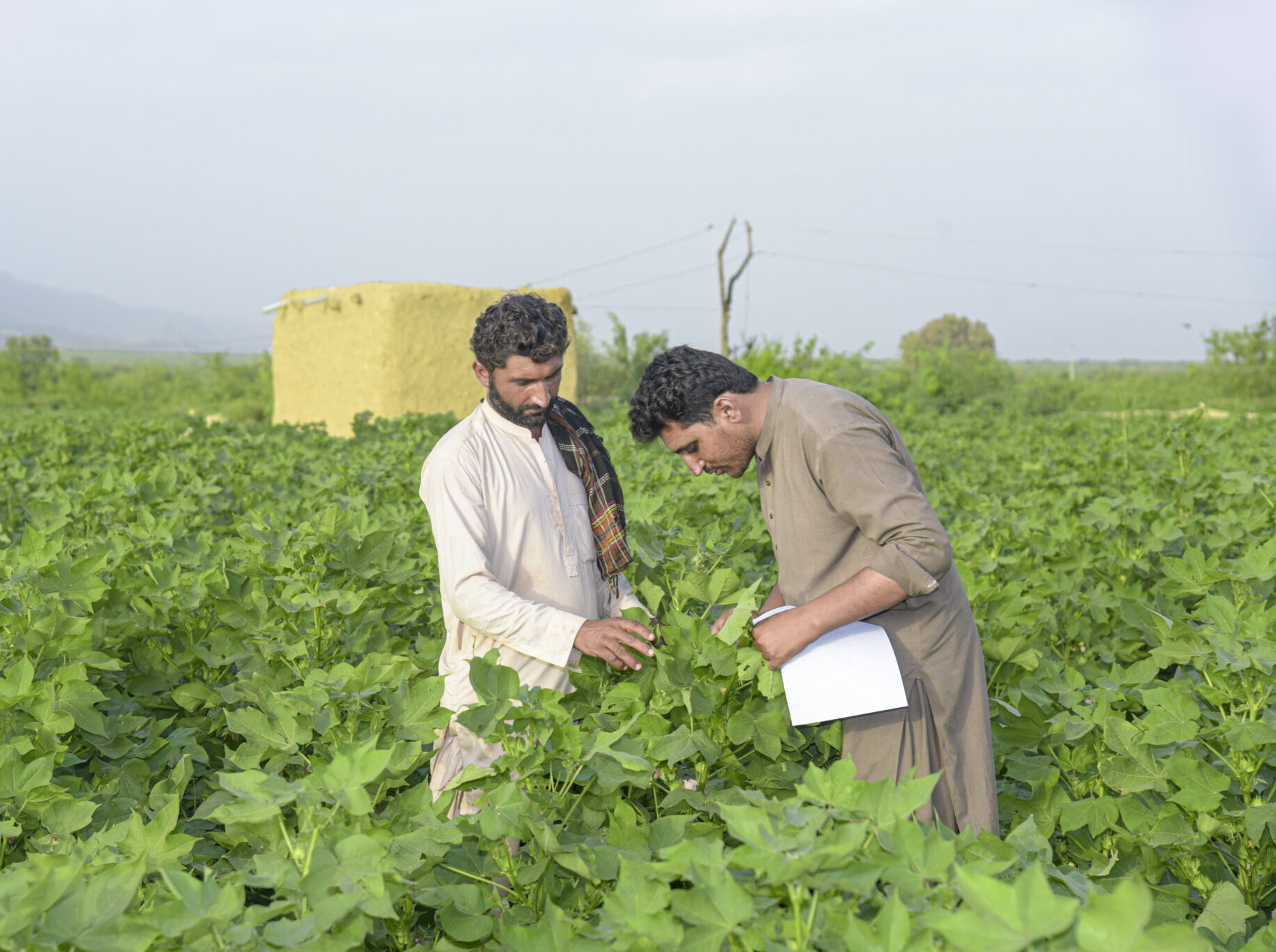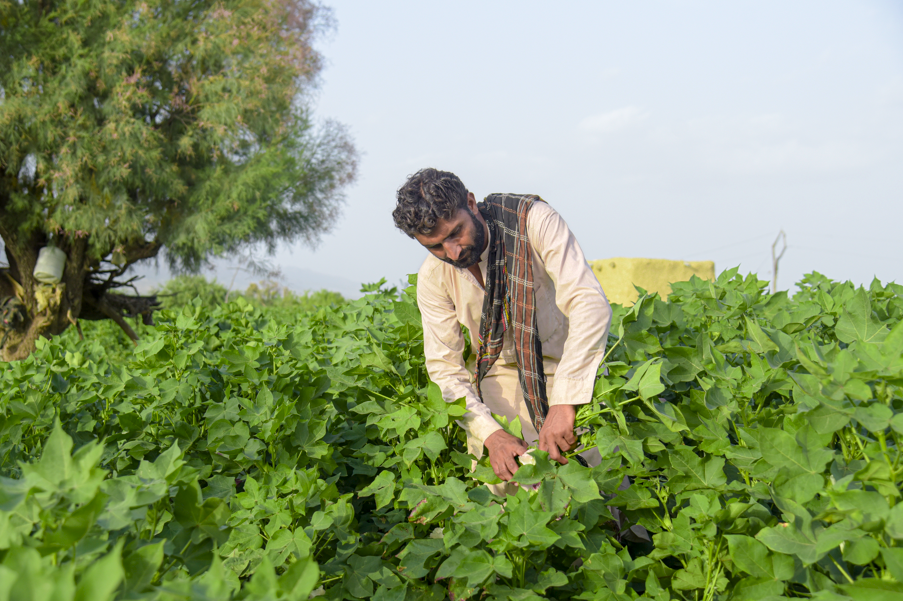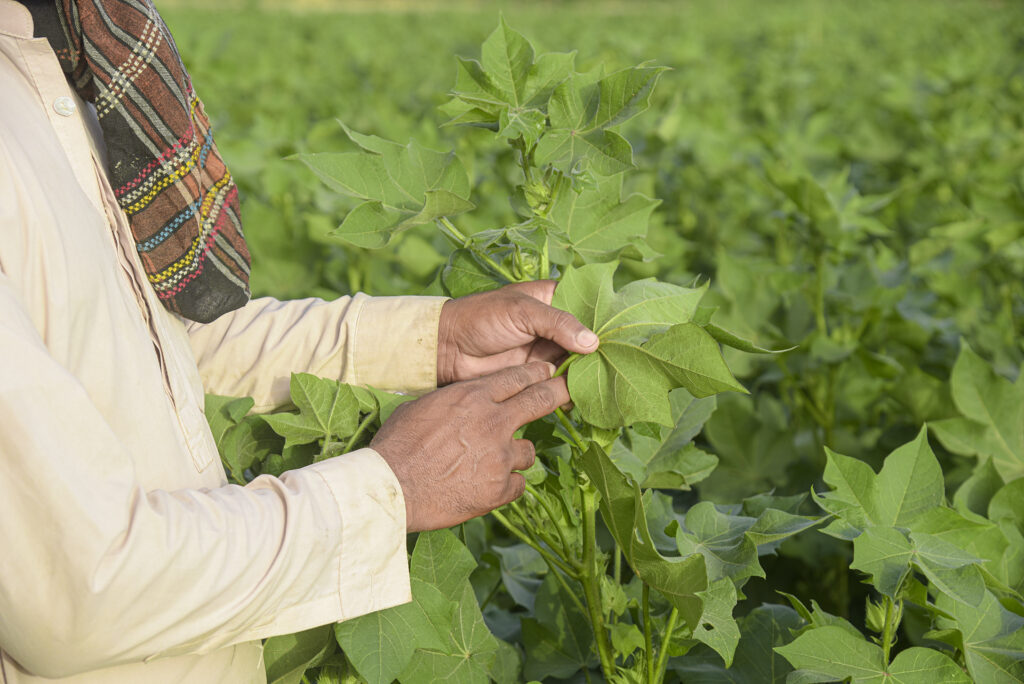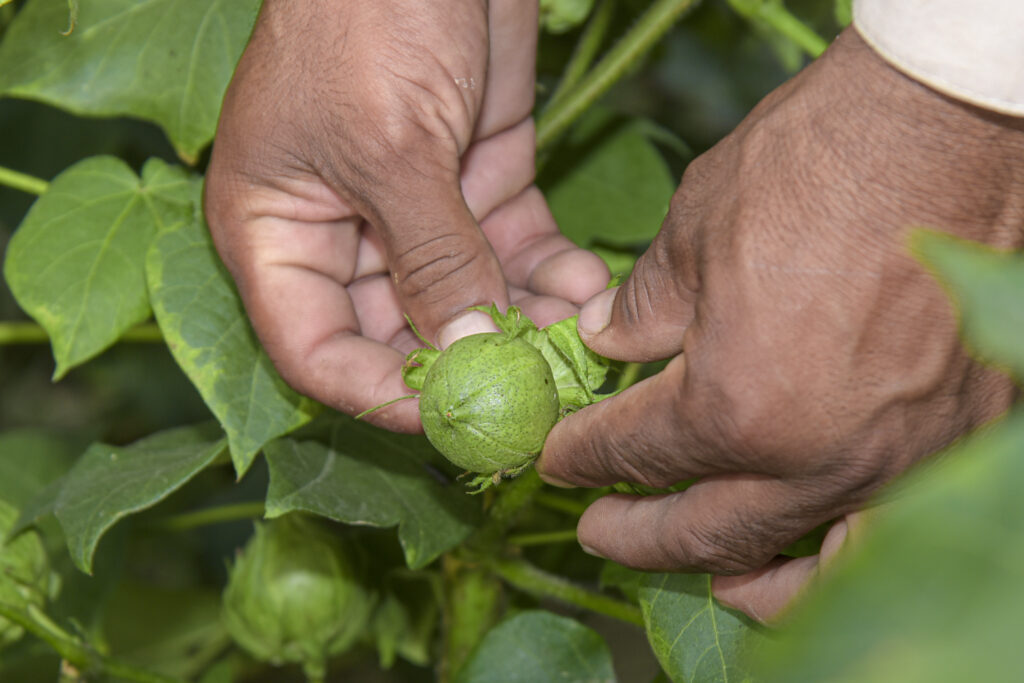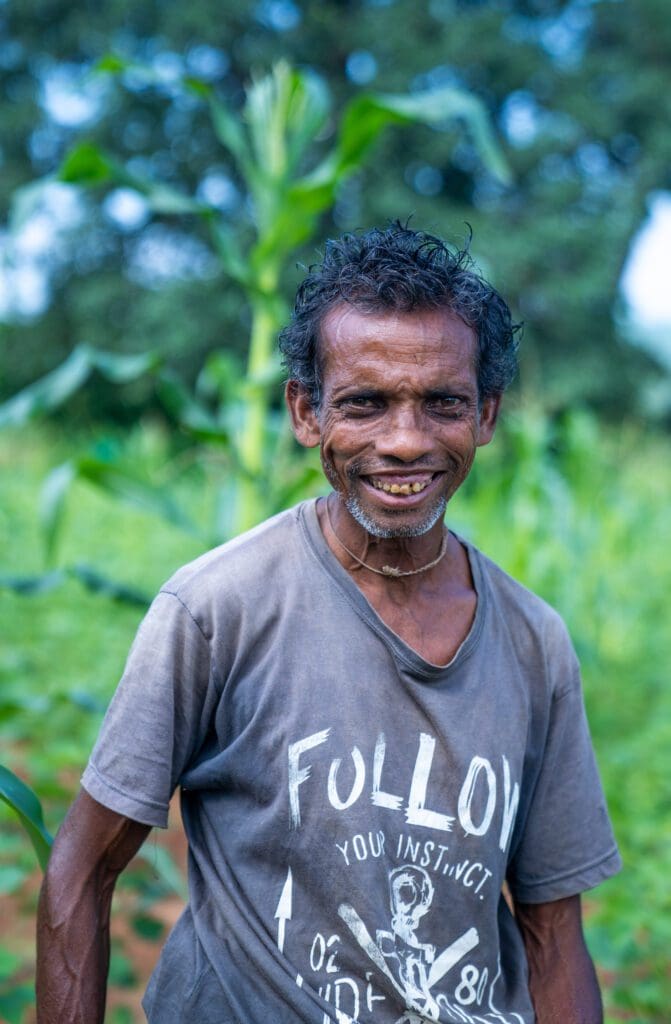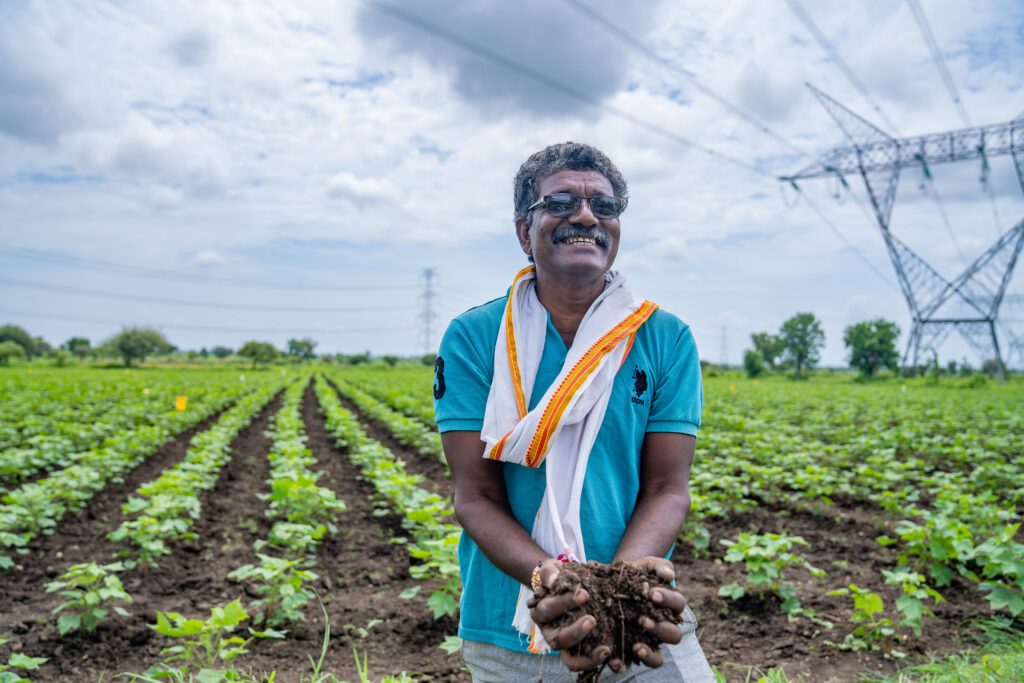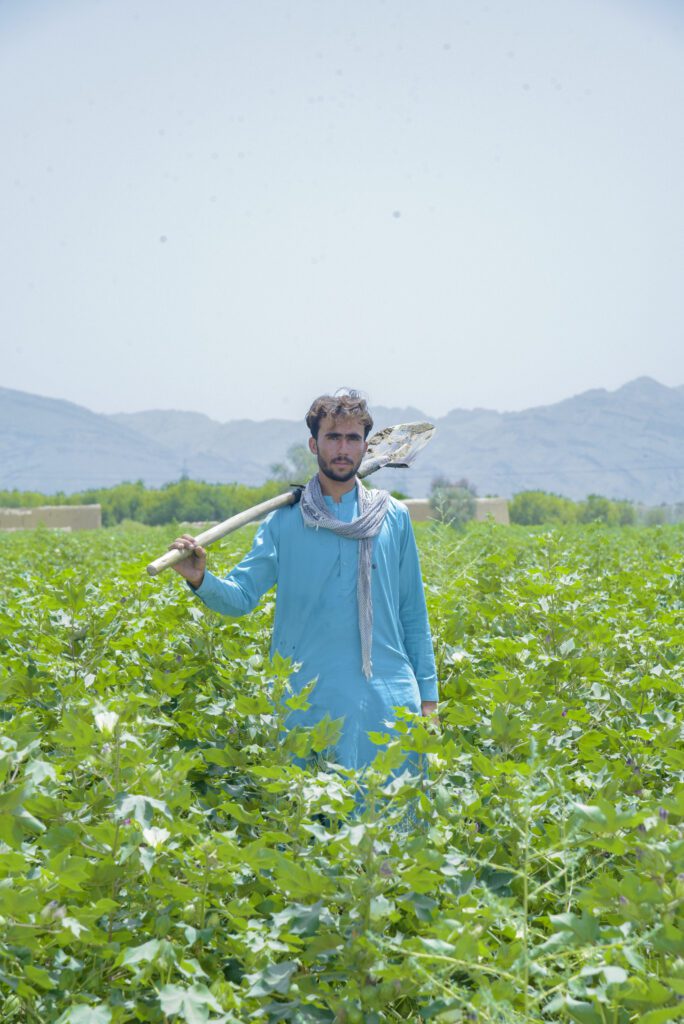 Pakistan
Pakistan Sherbaz was born and raised in Tambu, a village nestled in the Kohlu district, a semi-arid mountainous region located in the Balochistan province of Pakistan. About 5 years ago, Sherbaz embarked on cotton cultivation, driven by the hope of a profitable venture. However, his rather modest background and lack of expertise led him to rely heavily on synthetic pesticides to sustain his cotton farming, resulting in his falling ill. This experience made him realise the need for guidance in dealing with cotton pests and farming practices.
OCA responded to Sherbaz’s needs when he crossed paths with one of our field trainers conducting a baseline survey in the Tambu area. Initially, Sherbaz was hesitant; the prospect of an expert addressing his long-standing questions and providing free advice appeared almost too good to be true. However, as the field trainer explained OCA’s mission and how the organisation actively supports cotton farmers in navigating challenges such as cotton pests, synthetic pesticide poisoning, water availability, and market prices, Sherbaz was quick to realise he wanted to become a part of it.
Sherbaz was invited to a farmer training session organised by our Implementing Partner, Artistic Milliners operating in Kohlu. The training sessions covered topics such as cotton pest scouting and proper pest identification. Sherbaz was amazed at how much he didn’t know about this crucial aspect of cotton farming. How did he even manage to grow cotton without knowing how to spot and handle cotton pests? The very next day, expert field trainers joined Sherbaz on his farm to help him identify cotton pests and determine when it was necessary to take action.
The field trainers instructed Sherbaz on how to develop bio-pesticides from Neem leaves and bitter apple extract. They also taught him the correct water solution ratio and application frequency. In less than two days, Sherbaz managed to significantly reduce the cotton pests, mainly whitefly and jassid, that were plaguing his fields. Encouraged and pleased by the remarkable results he observed in his fields, Sherbaz eagerly absorbed all the knowledge the field trainers could offer and continued to educate himself further.
After seeing those successful results, I was ready to devote myself to the organic cotton cause. And now that I switched from conventional to organic cotton, I’m really satisfied with it and I have become a field tutor to help others transition too.
Why organic is better
Conventional cotton production contributes to biodiversity loss, soil degradation, water waste, synthetic pesticide pollution, and threatens the livelihoods and health of farming communities and their lands. While organic cotton farming doesn’t lack challenges, OCA has always been about creating the conditions for organic cotton to thrive – by putting farmers first. Our mission is to improve farmer livelihoods by providing them with essential training, support, and access to organic pest control and other vital resources for organic farming while establishing a stable market for their cotton production.
Organic farming systems truly have the potential to serve as a model for more sustainable, regenerative production. OCA’s Farm Programme has successfully mobilised a growing number of brands and retailers to take in within their supply chains. Through our direct-to-farmer sourcing model, brands can benefit from increased transparency while delivering tangible gains to organic farmers. Join OCA and support our programmes to drive the next generation of organic cotton supply. Let’s unleash the potential of organic cotton together!
